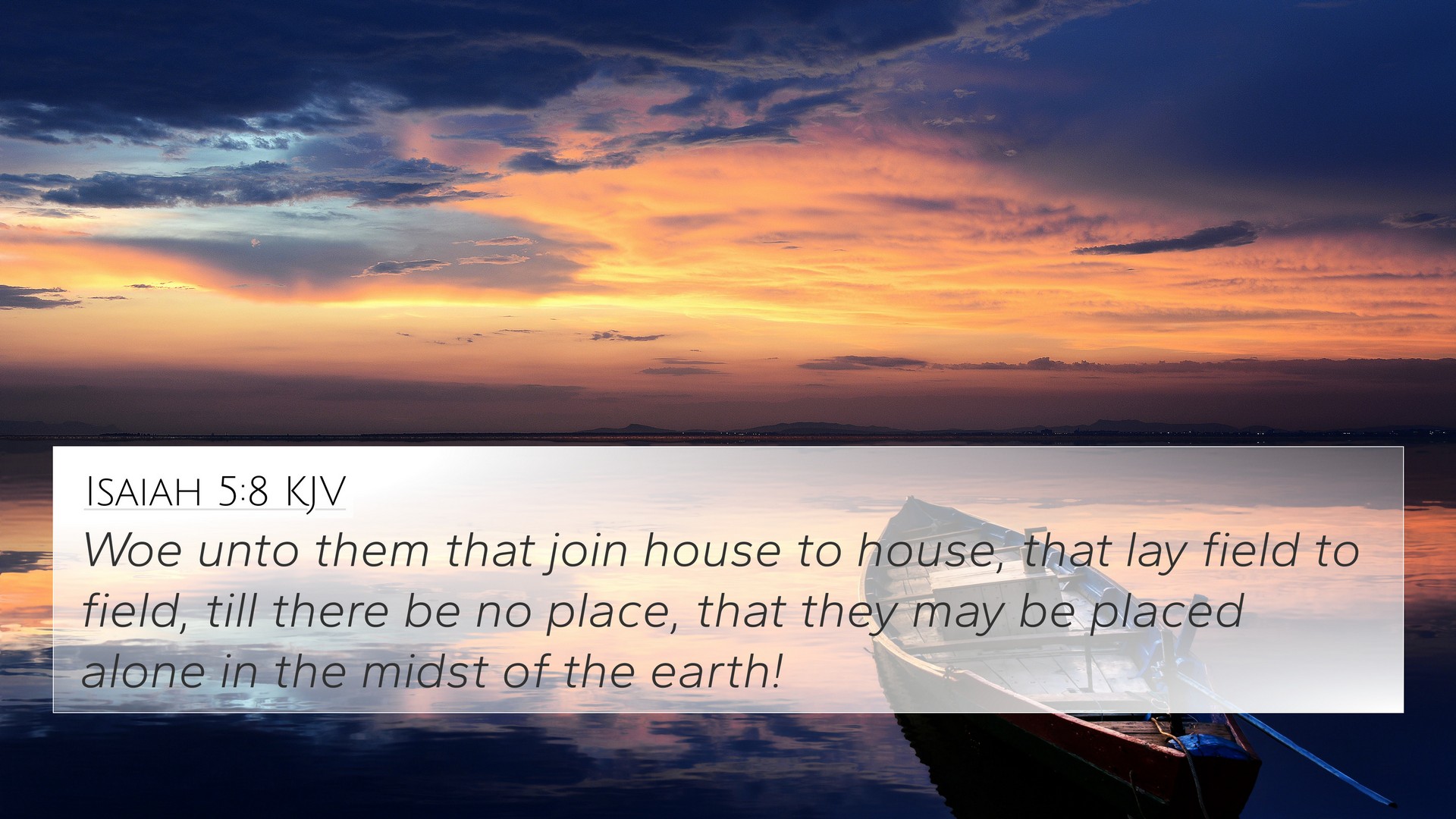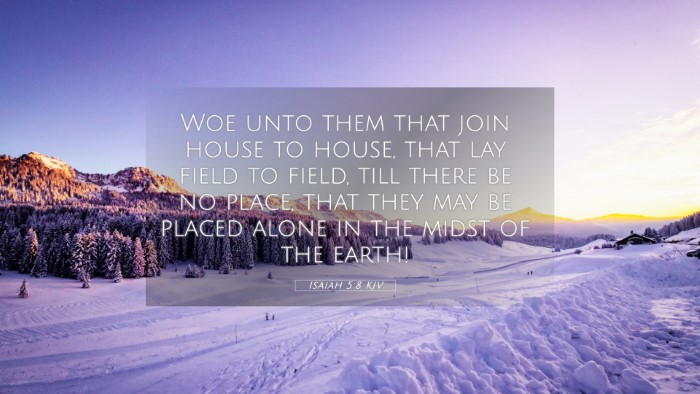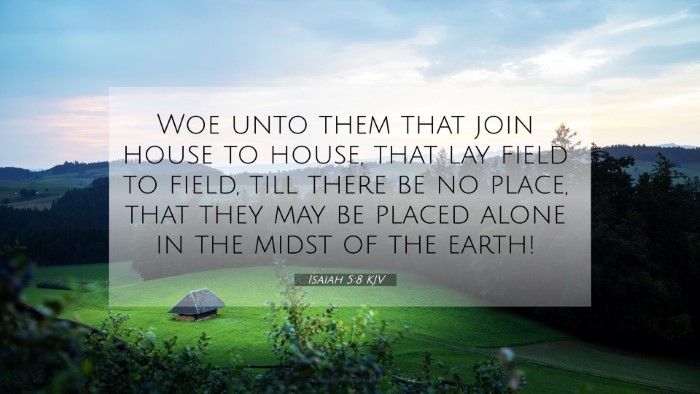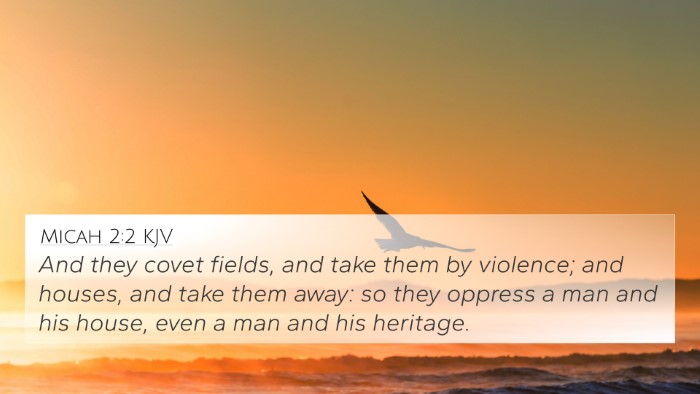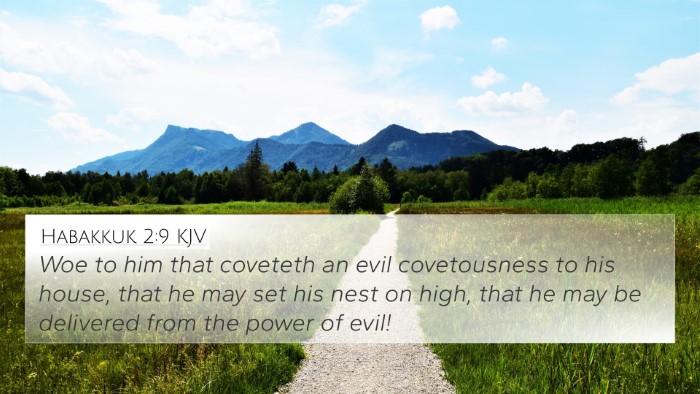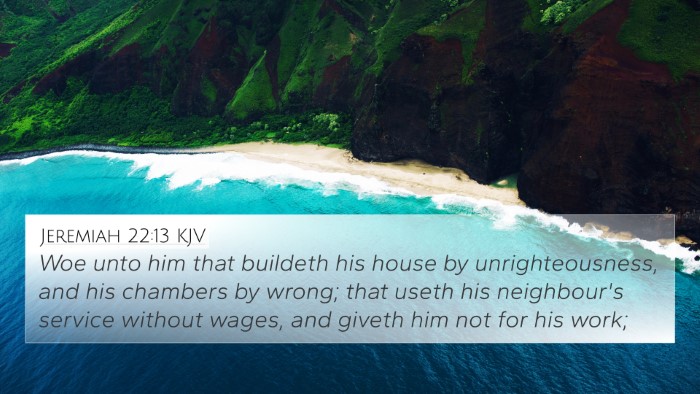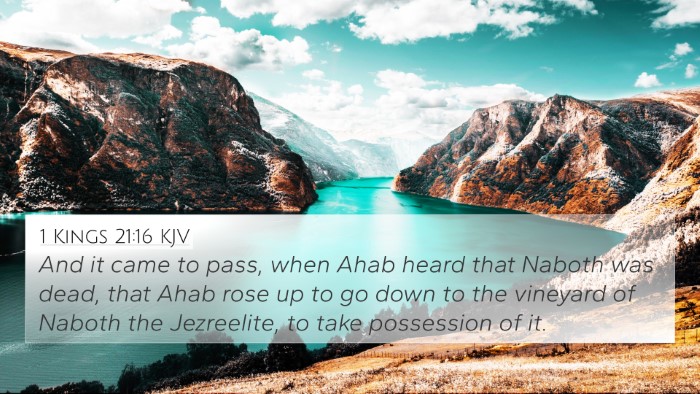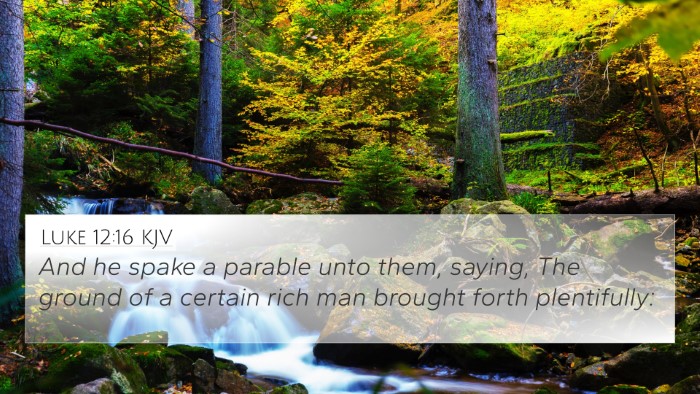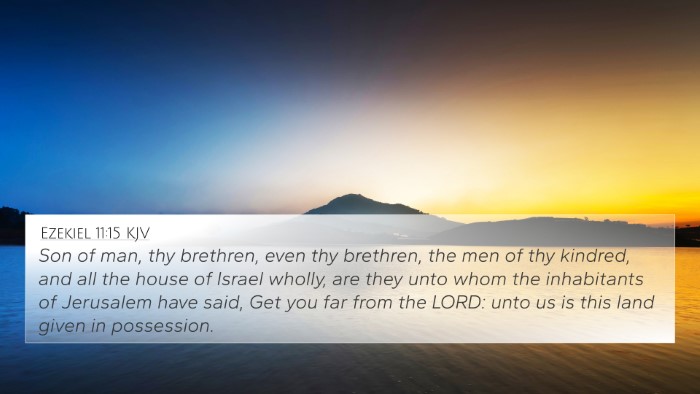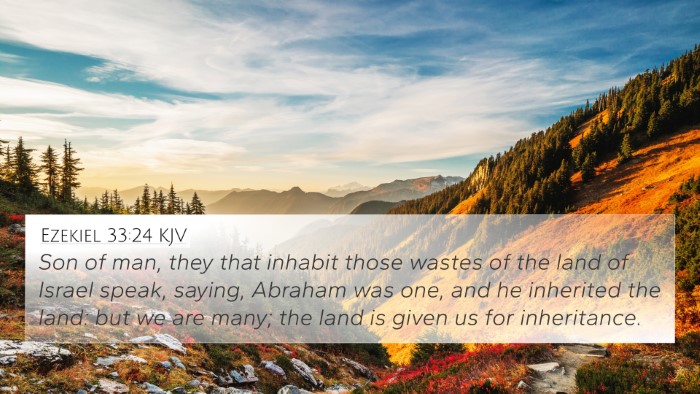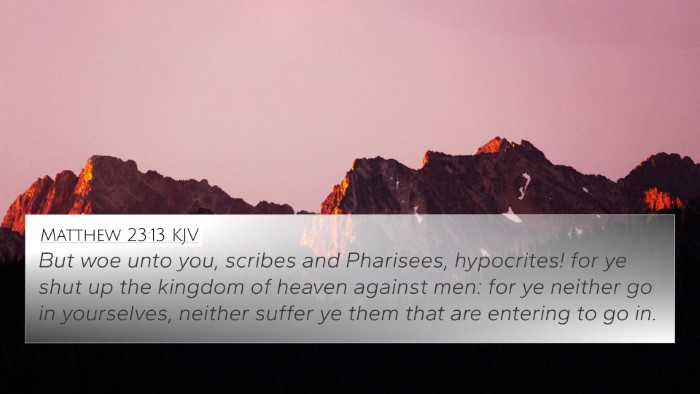Understanding Isaiah 5:8
Isaiah 5:8 states, "Woe unto them that join house to house, that lay field to field, till there be no place, that they may be placed alone in the midst of the earth!" This verse presents a significant and sobering warning regarding greed and the consolidation of wealth and land. It illustrates the moral and spiritual implications of such actions, emphasizing the injustice and consequences that arise from a societal focus on material acquisition at the expense of others.
Context of Isaiah 5:8
This verse is nestled within a series of "woes" pronounced by the prophet Isaiah. These declarations serve to highlight the sinful behaviors of the people of Judah, particularly the wealthy elite who exploit the poor and prioritize their desires over the collective good.
Insights from Public Domain Commentaries
According to Matthew Henry, this verse critiques the greed of those who accumulate property without concern for their neighbors, emphasizing that their actions lead to social injustice. Albert Barnes adds that this pursuit of land contributes to urban isolation where individuals care less for communal ties and more for personal gain. Adam Clarke elaborates that the appetite for expansion not only brings physical separation but also spiritual desolation.
Spiritual and Thematic Analysis
Greed and Injustice: Isaiah 5:8 reveals a significant theme regarding the consequences of unchecked greed. The accumulation of land and wealth leads to social inequity and spiritual emptiness.
- Social Consequences: The text illustrates how the relentless pursuit of material possessions can result in societal division and the neglect of communal responsibilities.
- Moral Warning: The verse serves as a moral call to examine one’s priorities and the impact of personal ambitions on others.
Bible Verse Cross-References
This verse connects with several others within the scriptures that echo similar themes of greed, justice, and community considerations:
- Micah 2:2: "And they covet fields, and take them by violence; and houses, and take them away: so they oppress a man and his house, even a man and his heritage." This verse similarly denounces the unjust acquisition of land.
- James 5:1-4: These verses warn the rich about the misery that comes from hoarding wealth and exploiting workers.
- Luke 12:15: "And he said unto them, Take heed, and beware of covetousness: for a man's life consisteth not in the abundance of the things which he possesseth." This highlights the futility of greed.
- Proverbs 22:22-23: "Rob not the poor, because he is poor: neither oppress the afflicted in the gate: for the Lord will plead their cause..." This reinforces the command against exploiting the vulnerable.
- Isaiah 10:1-2: "Woe unto them that decree unrighteous decrees, and that write grievousness which they have prescribed; to turn aside the needy from judgment..." condemns unjust laws that aid in the exploitation of others.
- Matthew 6:19-20: "Lay not up for yourselves treasures upon earth, where moth and rust doth corrupt..." encourages a perspective on wealth that stresses eternal values over temporal gains.
- Ezekiel 18:30: "Therefore I will judge you, O house of Israel, every one according to his ways, saith the Lord God..." emphasizes personal accountability in actions that affect others.
Conclusion
Isaiah 5:8 serves as a profound reminder of the dangers associated with greed and the relentless pursuit of material possessions. The insights from various commentaries highlight the need for a moral and ethical reevaluation of our priorities, urging believers to live in a manner that fosters community and justice.
For those seeking to delve deeper into Scriptural texts, engaging in a comparative Bible verse analysis can reveal connections between different passages, providing a richer understanding of similar themes and messages throughout the Bible.
